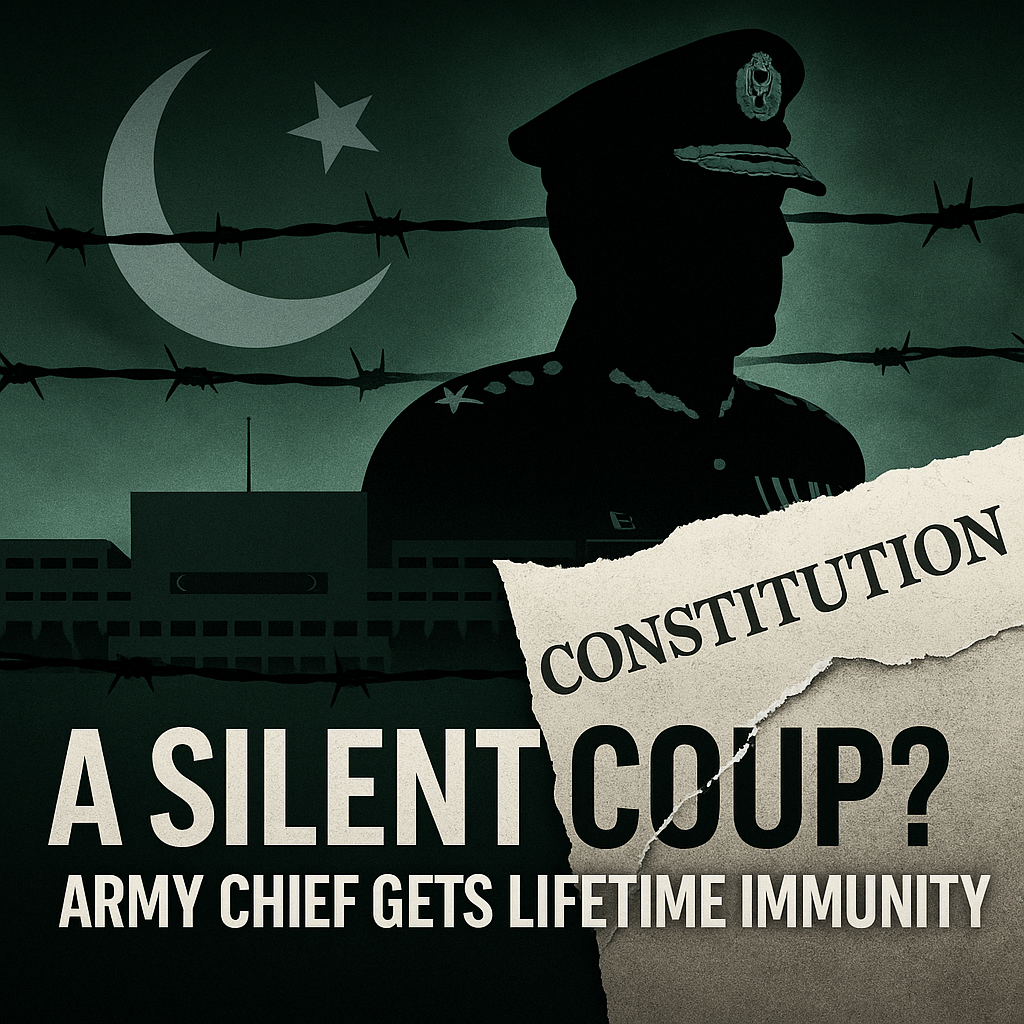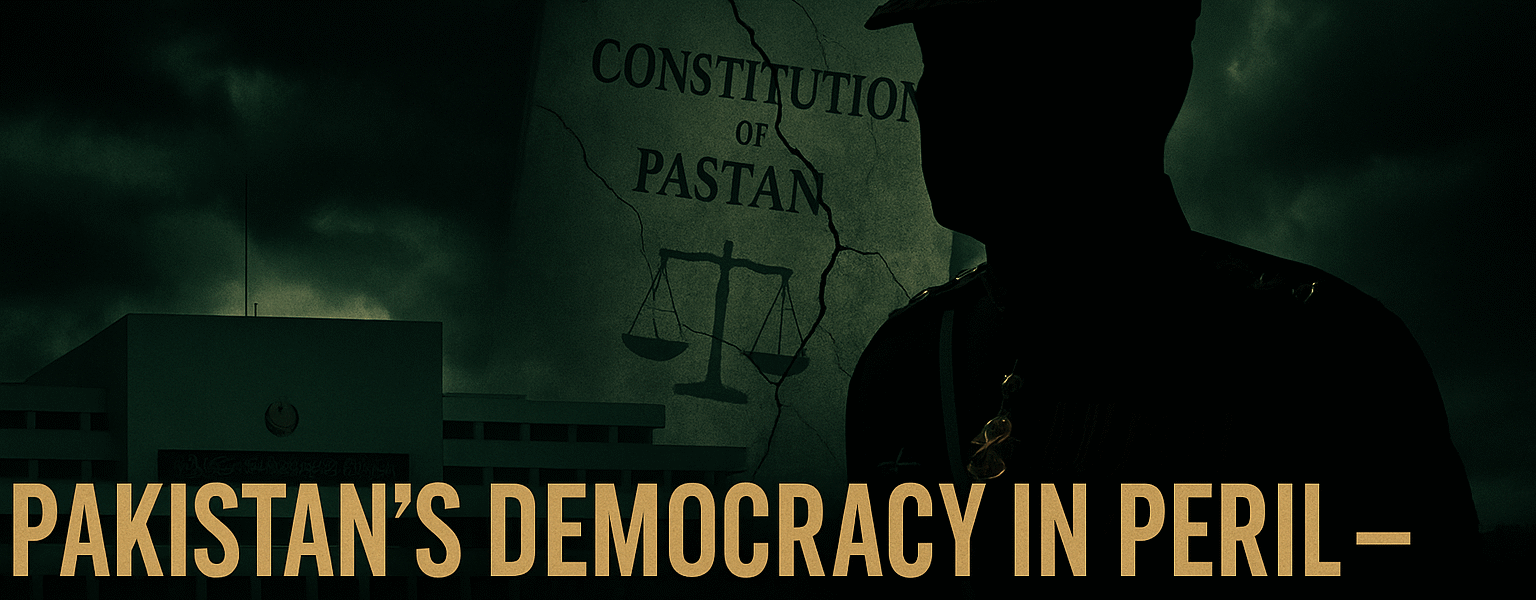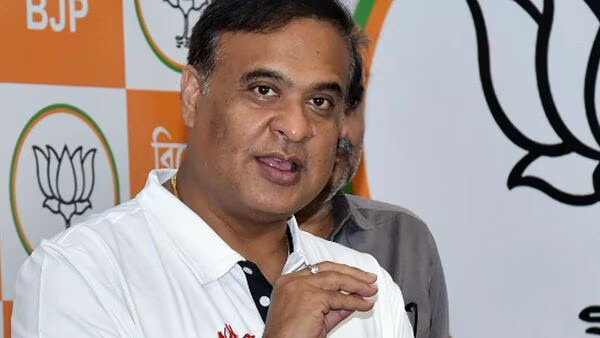Pakistan’s Democracy in Peril: Parliament Grants Army Chief New Powers & Lifetime Immunity — A Silent Coup?
Pakistan’s parliament has pushed through a sweeping constitutional overhaul that formally elevates Army Chief General Syed Asim Munir above all other military commanders and grants him lifetime legal immunity — a move critics are calling the most serious rollback of democracy since the country’s last military coup.
The 27th Constitutional Amendment, rushed through both houses in a matter of days, does three big things at once:
- Creates a new, all-powerful post of Chief of Defence Forces (CDF), to be held by Munir.
- Grants lifelong immunity from criminal prosecution to Munir once he is elevated to Field Marshal.
- Strips Pakistan’s Supreme Court of its role as the final arbiter on constitutional matters, handing that authority to a new, government-appointed Federal Constitutional Court.
The bill passed the National Assembly with 234 votes in favour and only four against, after sailing through the Senate earlier this week amid an opposition boycott. Most lawmakers from the jailed former prime minister Imran Khan’s Pakistan Tehreek-e-Insaf (PTI) were absent or protesting in and outside parliament.
What exactly did parliament change?
According to the text of the 27th Amendment and government explanations reported by Pakistani and international media, the reforms:
- Create the post of Chief of Defence Forces (CDF)
- Munir will simultaneously serve as Chief of Army Staff (COAS) and Chief of Defence Forces, giving him command over the army, navy and air force, replacing the existing system where a separate Chairman Joint Chiefs of Staff sat nominally above the three service chiefs.
- The CDF will also have a decisive role in national strategic command, overseeing nuclear and missile assets in consultation with the prime minister.
- Grants lifetime immunity and permanent rank
- Once elevated to Field Marshal, Munir will retain that rank even after retirement and enjoy lifelong immunity from criminal prosecution for acts committed in office.
- Separate news reports and legal analyses say this is done by amending Article 248 of the Constitution so that a Field Marshal enjoys broader and longer immunity than even the president, whose protection is limited to time in office.
- Redraws the judicial map
- A new Federal Constitutional Court (FCC) will now hear constitutional and high-stakes political cases, powers currently held by the Supreme Court.
- Judges of the FCC will be appointed by the executive, giving the government — and by extension the military that backs it — decisive influence over who interprets the Constitution.
In effect, the amendment doesn’t just formalise the army’s traditional clout; it constitutionalises a military-led order that will be extremely hard to reverse without another two-thirds majority in a future parliament.
Critics: “A silent coup in slow motion”

Legal scholars, rights activists and opposition figures have reacted with alarm. Several have described the move as a “silent coup”, arguing that Pakistan now has military supremacy not just in practice, but by design of the Constitution itself.
Key concerns raised include:
- Lifelong immunity for the most powerful man in the state
- A detailed legal commentary by scholars on JURIST notes that by giving a Field Marshal absolute immunity under Article 248, the amendment effectively neutralises Article 6, which classifies any abrogation or subversion of the Constitution as high treason. A future general who suspends the Constitution could, in theory, no longer be prosecuted.
- Judiciary placed under political — and indirectly military — influence
- With a government-appointed FCC taking over constitutional questions, sensitive cases involving elections, dissolution of assemblies, or challenges to military interference will no longer go to a relatively independent Supreme Court.
- Collapse of meaningful parliamentary opposition
- PTI — the country’s largest opposition party in terms of popular vote in recent years — largely boycotted the vote, its leadership jailed or disqualified. That meant a historic restructuring of Pakistan’s state architecture went through with almost no real debate inside parliament.
Some Pakistani commentators say this is not a dramatic, tanks-on-the-streets coup, but something more insidious: an elected government voluntarily signing away parts of its own authority under pressure and patronage from the military.
A long history of khaki over the ballot box
To many Pakistanis, this moment feels less like a rupture and more like the culmination of decades-long trends.
Since independence in 1947, Pakistan has spent roughly half of its existence under direct military rule:
- Ayub Khan’s coup (1958) and the subsequent rule of Ayub and Yahya Khan entrenched the army as the ultimate arbiter of power.
- General Zia-ul-Haq’s coup (1977) overthrew Zulfikar Ali Bhutto and launched an era of Islamisation, patronage to Islamist groups and tight control of civilian politics.
- General Pervez Musharraf’s coup (1999) ousted Nawaz Sharif, ushering in another decade of overt military rule.
Even after a formal return to civilian rule in 2008, few doubt where real power lies. The army has been widely seen as orchestrating the rise and fall of prime ministers, from disqualifications by courts to behind-the-scenes coalition engineering.
No prime minister has ever completed a full five-year term in office.
The new amendment builds on earlier legal strengthening of the army’s position — notably the Pakistan Army (Amendment) Act, 2020, which allowed the government to extend an army chief’s tenure by up to three years and barred courts from reviewing such extensions.
If that 2020 law made extensions unchallengeable, the 2025 constitutional changes go further: they hard-code a structure in which the army chief is more powerful than any other general, shielded from prosecution, and backed by a judicial architecture less likely to defy him.
Built as a security state, hardened by ideological politics
Pakistan’s state identity has long been shaped by two forces:
- Security competition with India and the trauma of partition, and the 1971 Bangladesh war.
- The use of religion and Islamist narratives as tools of internal legitimacy and regional policy, especially from the Zia era onwards.
Militancy, the Afghan jihad, and later the rise of groups using Islamist rhetoric have all helped the security establishment present itself as the indispensable guardian of a nation “under siege” — from India, from terrorism, from political chaos.
That narrative has repeatedly justified military intervention in politics, whether overt coups or “behind-the-scenes” management. The new amendment effectively says: this guardianship is now constitutionally supreme, and its chief guardian cannot be held to account in ordinary courts.
Why now – and who benefits?
Several overlapping calculations appear to be in play:
- A politically fragile civilian leadership
- Prime Minister Shehbaz Sharif’s coalition depends heavily on the military’s blessing. With Imran Khan’s PTI leaders jailed or sidelined, the government has chosen accommodation over confrontation with Munir.
- An army chief consolidating power after a turbulent period
- The army has faced public criticism in recent years — from allegations of manipulating elections to clashes with PTI supporters. The new architecture gives Munir formal, undisputed primacy over all armed services and the strategic command, potentially quieting internal rivalries and cementing his legacy.
- International optics and security partnerships
- Pakistan is in deep economic distress, reliant on the IMF and seeking investment from the Gulf, China and the West. Foreign partners often prioritise “stability” and counter-terrorism cooperation over democratic niceties.
- Critics inside Pakistan argue that the West, especially the United States, is unlikely to seriously push back against Munir’s elevation as long as he is seen as a reliable security interlocutor — feeding perceptions that he is a “pro-US” strongman, even if foreign capitals avoid that label publicly. This remains an allegation, not a fact.
What this means for Pakistan’s democracy
The short-term picture is already clear:
- The military’s supremacy is now constitutionally codified, not merely conventional.
- The most powerful soldier in the country has greater authority than any individual civilian office-holder, and more protection from the law than even the president.
- The Supreme Court’s ability to check executive or military overreach is sharply reduced, at a time when opposition parties are partly dismantled.
In the medium to long term, analysts warn of several risks:
- Normalisation of permanent emergency
- If the army chief knows he cannot be prosecuted, the deterrent value of constitutional safeguards like Article 6 is weakened. Future confrontations between civilian governments and the military could be resolved in favour of the gun, not the gavel.
- Chilling effect on civilian leadership
- Prime ministers and cabinets may become even more cautious about challenging security policies, foreign alignments, or internal crackdowns, knowing that the other side of the civil-military equation is literally untouchable in law.
- Further erosion of public trust
- Many Pakistanis already see their democracy as a “managed” system. Enshrining a super-general with lifetime immunity risks deepening cynicism and alienation, especially among younger voters who turned out in large numbers for PTI.
- Regional implications
- For neighbours like India and Afghanistan, a more centralised Pakistani military command may mean greater predictability in deterrence — but also less civilian input into crises, which has historically helped de-escalate.
A turning point, not just another amendment
Pakistan has amended its Constitution many times. But by merging military muscle with constitutional supremacy and personal immunity, the 27th Amendment marks a qualitative shift.
For supporters, it is about discipline, cohesion and stability in a nuclear-armed state facing insurgency, polarisation and economic collapse.
For critics, it is a stark warning:
the country is drifting from a flawed, struggling democracy toward a formalised praetorian system — one in which voters still cast ballots, but the ultimate arbiter of power is a uniformed, unelected figure who cannot be held to account in an ordinary court of law.
How Pakistan’s civil society, judiciary, media and political class respond in the coming months will determine whether this moment becomes a brief aberration — or the blueprint for a new, more authoritarian chapter in the country’s history.
Pakistan army chief new powers, Pakistan lifetime immunity law, Pakistan 27th amendment, Chief of Defence Forces Pakistan, Pakistan military takeover, Pakistan democracy crisis, Asim Munir powers amendment, Pakistan constitutional crisis, Pakistan parliament army law, Pakistan authoritarian rule
#Pakistan #PakistanCrisis #AsimMunir #MilitaryRule #DemocracyUnderThreat #PakParliament #PakistanArmy #CivilMilitaryRelations #Authoritarianism #SouthAsiaPolitics #BreakingNews #InvestigativeReport
Discover more from
Subscribe to get the latest posts sent to your email.











1 COMMENTS